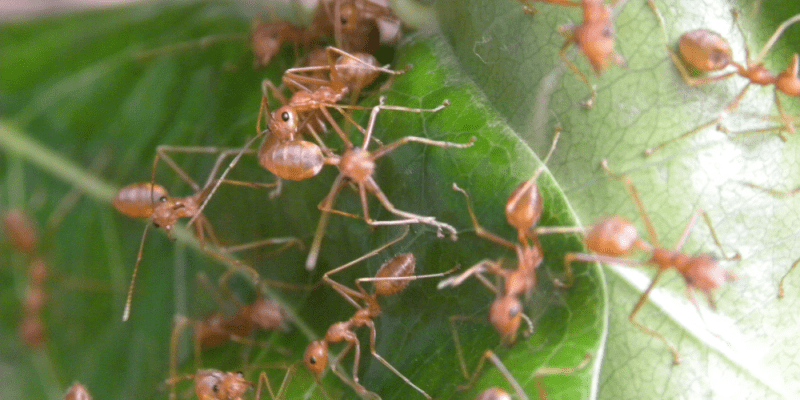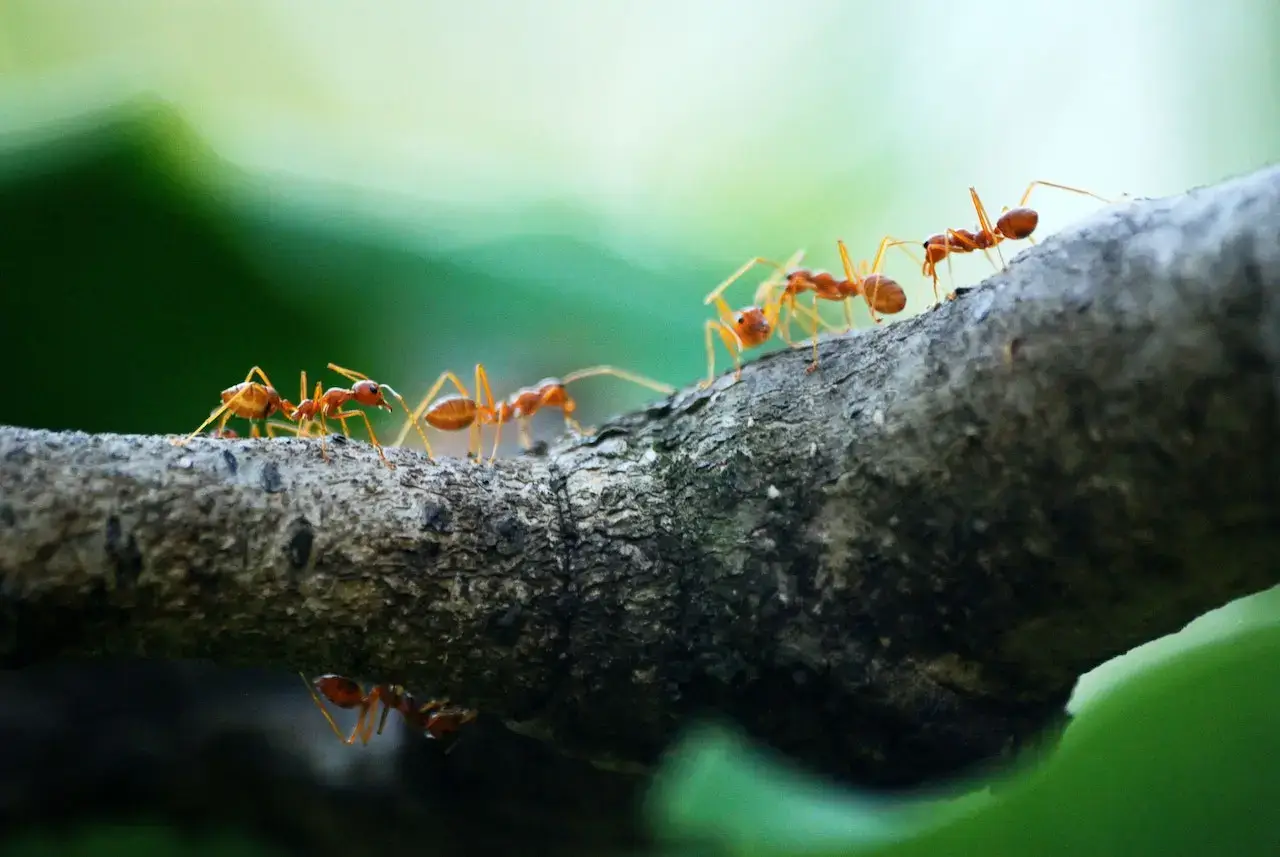Ecological Effect of Pest Control: Harmonizing Performance With Sustainability
The environmental effect of bug control is an important problem that requires a fragile balance between accomplishing efficiency in managing parasites and making sure sustainability of our ecosystems. As we make every effort to shield our plants, homes, and health and wellness from the threats presented by insects, the approaches we utilize can unintentionally harm the atmosphere. From using unsafe chemicals that leak right into our dirt and water to the unintentional effects on non-target types, the effects of conventional pest control techniques are far-reaching. Nonetheless, there are emerging approaches that provide expect a much more sustainable strategy to pest monitoring. These solutions not only purpose to address the instant bug problems however additionally think about the lasting health of our planet.
Damaging Chemicals in Parasite Control
The utilization of unsafe chemicals in parasite control poses substantial ecological and health and wellness dangers that call for cautious factor to consider and reduction strategies. Herbicides, chemicals, and pesticides are typically used to eliminate insects, however their widespread application can cause unexpected repercussions. These chemicals can pollute soil, water sources, and the air, impacting not just the targeted bugs however also valuable pests, wild animals, and human beings.

To attend to these threats, incorporated parasite management (IPM) techniques are being promoted as a much more sustainable option. IPM includes a combination of techniques such as organic control, habitat control, and the targeted usage of chemicals as a last option (ant control lake norman of catabwa nc). By taking on a holistic approach to pest control, we can reduce the ecological and health and wellness effects associated with hazardous chemicals while effectively taking care of pest populaces
Influence On Non-Target Types
Considering the unintended effects of bug control approaches, the effect on non-target species is a crucial facet that needs extensive examination. While bug control measures intend to target particular parasites, various other organisms in the ecological community might be inadvertently influenced. Non-target types, consisting of helpful pests, birds, creatures, and even plants, can endure direct or indirect harm from chemical applications or biological control approaches.
Pesticides designed to fight a specific insect pest may hurt pollinators like bees or all-natural killers such as ladybugs. Organic control representatives, if not species-specific, can pose risks to unintentional targets, interrupting the environmental equilibrium.
To minimize the effect on non-target species, incorporated parasite management (IPM) approaches that emphasize a holistic method to pest control are suggested. These methods prioritize making use of eco friendly techniques, decreasing injury to advantageous organisms while properly taking care of pest populations. Performing extensive danger evaluations and checking the end results of parasite control initiatives are necessary action in protecting non-target types and promoting overall ecosystem health.
Dirt and Water Contamination
Unexpected environmental repercussions of bug control techniques extend past affecting non-target species, with considerable effects for dirt and water contamination. Chemicals, herbicides, and chemical fertilizers used in parasite control can leach right into the soil and contaminate groundwater, presenting a risk to both aquatic and earthbound ecological communities. Soil contamination can disrupt the equilibrium of microorganisms essential for nutrient biking and plant growth, causing reduced dirt fertility and productivity. Furthermore, these chemicals can linger in the atmosphere for extensive periods, gathering in the soil and potentially entering the food web.
Water contamination is another crucial concern connected with insect control methods. Drainage from farming areas treated with chemicals can lug these chemicals into nearby water bodies, impacting water microorganisms and water top quality. Pollutants in water resources can have far-reaching consequences, impacting not only aquatic life yet also human wellness via the intake of infected water or water organisms. To alleviate dirt and water contamination from bug control tasks, incorporated bug administration strategies that prioritize sustainability and lessen chemical inputs are critical.
Air Air Pollution From Pesticide Usage
Direct exposure to airborne chemicals throughout agricultural applications poses a considerable concern for air pollution control actions. When chemicals are sprayed onto plants, they can volatilize right into the air and type unstable organic substances (VOCs) and other airborne contaminants. These chemicals can contribute to the development of ground-level ozone, a significant part of smoke that can have detrimental results on human health and wellness, crop performance, and general air top quality. Furthermore, pesticide drift, where pesticides are brought by the wind to unintentional locations, can cause the contamination of close-by ecological communities and water bodies.

Approaches for Sustainable Insect Control
In the realm of farming practices, carrying out lasting parasite control techniques is vital for keeping environmental equilibrium and safeguarding crop returns. Lasting parasite control stresses using eco-friendly methods to handle bug populaces properly while minimizing harm to non-target organisms and environments. Integrated Parasite Monitoring (IPM) is an extensively adopted approach that combines biological, social, physical, and chemical control techniques to accomplish long-lasting pest management options.
Crop turning and diversity are likewise effective strategies to interrupt pest life cycles and create much less favorable problems for bugs to thrive. Eventually, by integrating these sustainable insect control approaches, farmers can accomplish a balance between pest administration effectiveness and ecological stewardship.
Verdict
To conclude, the ecological impact of bug control techniques should be carefully thought about to balance efficiency with sustainability. Harmful chemicals used in bug control can result in soil and water contamination, air contamination, and damage non-target species - termite control. It is important to execute sustainable insect control techniques to lessen these negative results on the environment and promote a much healthier ecosystem for future generations
By adopting an alternative approach to pest control, we can reduce the ecological and wellness impacts associated with dangerous chemicals while properly managing pest populations.

To minimize the air pollution triggered by chemical use, it is essential to take on integrated bug management techniques that prioritize the use of non-chemical insect control techniques, such as crop turning, natural killers, and resistant plant varieties. Lasting pest control highlights the usage of ecologically pleasant methods to handle pest populaces effectively while decreasing harm to non-target microorganisms and ecosystems. Integrated Bug Monitoring (IPM) is a widely embraced technique that combines biological, social, physical, and chemical control approaches to achieve long-lasting bug monitoring dig this solutions.